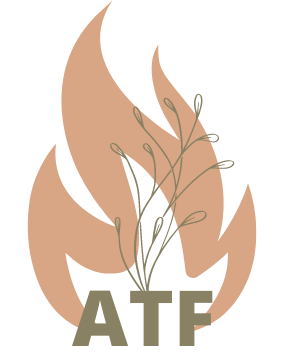After the Flames
IN-PERSON CONFERENCE & WORKSHOP
CO-HOSTED WITH THE WASHINGTON DEPARTMENT OF NATURAL RESOURCES
April 6-9, 2026
Suncadia| Cle Elum, Washington
Request for Presentations
DUE DECEMBER 15, 2025

We invite submissions for presentations at the 2026 ATF Conference and Workshop Collective Recovery from the Ground Up, where we will explore strategies, tools, and collaborative approaches that contribute to enhancing planning for effective post-fire recovery. Share your expertise and insights on enhancing pre-fire planning, addressing policy challenges, integrating science, and showcasing practical implementation strategies aimed at building resilient communities. Join us in shaping the future of post-fire recovery and fostering resilience in the face of wildfire.
HOW TO SUBMIT YOUR PRESENTATION ABSTRACT ON EXORDO:
Create an account. Login. Once in your Exordo Dashboard, click on “Start New Abstract” and complete all six steps:
- STEP 1: FORMAT
Select your presentation format. - STEP 2: TITLE & ABSTRACT
Add your Presentation Title and abstract. The abstract description should include the purpose and content of the session. - STEP 3: AUTHORS
List all the author(s)/presenter(s) for your session.
All presenters must be listed.
All authors must confirm that the work is original to the author/presenter or has permission from the author to use the work.
Please indicate if special accommodations are needed to access the site. - STEP 4: BIOGRAPHY
Provide each author’s brief biography. - STEP 5: TOPIC
Select a maximum of two topics that describe your session. - STEP 6: PRESENTATION REQUIREMENTS
Select your presentation style.
Select your presentation length.
Equipment: Projectors and screens will be provided. Please indicate if you need any additional equipment or materials for your session, such as whiteboards, notepads, flip charts, or markers.
You will receive an email confirmation of your abstract submission within 15 minutes. You can amend the submittal or add additional proposals until December 15, 2025. All accepted submissions will be notified by January 31, 2026. At that time, you will receive information on PowerPoint submittal and format.
All presenters must be registered for the conference by February 9, 2026, or the presentation will be dropped from the program. If you have questions or experience difficulties in submitting your abstract, please email Maria at maria.brandt@co-co.org.
PRESENTATION TOPICS:
Pre-Fire Planning for Better Post-Fire Recovery
- Exploring strategies and best practices for pre-fire planning to facilitate efficient and effective post-fire recovery efforts.
- Integrating post-fire considerations into Community Wildfire Protection Plans (CWPPs) and Hazard Mitigation Plans (HMPs).
- Assessing the role of science in informing management decisions for fire outcomes and its impact on community readiness for post-fire impacts.
- Leveraging AI and data-driven approaches for risk-informed decision-making in post-fire recovery planning.
- Identifying available tools and resources for pre-fire planning and discussing challenges and opportunities in their accessibility and utilization.
- Promoting the importance of including post-fire discussions in pre-fire planning processes.
All Hands All Lands Approach to Collaboration
- Addressing challenges and barriers to effective interagency collaboration in post-fire recovery.
- Cultivating partnerships and networks that support ongoing collaboration and coordination.
- Highlighting the involvement of diverse stakeholders beyond agencies.
- Exploring the role of post-fire navigators and showcasing their contributions to post-fire recovery planning and implementation.
Policies and Regulations for Resilient Post-Fire Recovery
- Discussing policy barriers and opportunities for implementing effective post-fire recovery strategies.
- Assessing the progress and recommendations of relevant commissions and working groups.
- Visioning the future of post-fire recovery management systems.
- Examining FEMA’s role and contributions in post-fire recovery.
Bridging the Gap Between Science and Practical Application
- Making the best science accessible to practitioners.
- Working in social-ecological systems.
- Identifying funding sources and leveraging multiple funding streams for post-fire recovery projects.
Fostering Strategic and Tactical Approaches
- Sharing available tools and resources, case studies and success stories showcasing practical implementation tactics alongside broader strategic
- approaches.
PRESENTATION FORMATS:
Organized Session
A session featuring up to six subject matter experts speaking on an area of post-fire recovery. The organizer brings together the speakers and manages the session. Participants in the session will gain an in-depth understanding of current research and methodologies for post-fire response. There are three formats to choose from if you are hosting an Organized Session;
- 1) Panel discussion: Dynamic conversations from experts in the field through panel discussions or a series of thematically linked presentations. These sessions will explore key topics and challenges related to post-fire recovery, featuring multiple perspectives and insights. Participants will gain a comprehensive understanding of current issues and innovative approaches in the field.
- 2) Hands-On Workshop:
Experience hands-on demonstrations of tools, technologies, and resources that enhance effectiveness in post-fire work. These sessions may include software demonstrations, field equipment showcases, or practical demonstrations of innovative solutions. Participants will have the opportunity to explore and familiarize themselves with tools that can support their post-fire recovery efforts
3) Field Trip: In-field learning and skill development. Attendees will see the work in practice. If you are submitting to host a Field Trip, your organization will be responsible for transportation, liability, and planning.
Individual Short Session
20-minute informative presentations that provide in-depth knowledge and analysis of specific post-fire recovery topics. These presentations will offer valuable insights into research findings, policy updates, case studies, and emerging trends in the field. Participants will gain a deeper understanding of lessons learned and new developments and approaches in post-fire recovery.
Poster Session
Opportunity to present scientific work informally, generating opportunities for networking and feedback. Posters communicate concepts and data using a combination of visuals and text on your and/or your colleagues’ research. These presentations offer the chance for all conference attendees to stay up-to-date on recent studies and publications.
